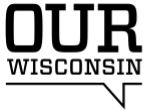As freshmen, we often experience some culture shock in our first two weeks of class at the University of Wisconsin-Madison. For some of us, the school is bigger than anything we’ve ever seen. For others, classes are harder than we expected. But, for a lot of students, especially minority students and members of historically disadvantaged communities, the obvious lack of diversity comes as a big hit.
Classes, dorms and student organizations are often heavily segregated. Meanwhile certain schools, like engineering or the business school, have serious challenges in the years to come to achieve higher diversity levels.
As a student who hasn’t had much interaction with people of color, an experience many UW students can relate too, I often found that I could not have a conversation with someone without accidentally using a stereotype or committing a micro-aggression. Most of the time I’d do this without even realizing it was wrong. At the same time, I often times did not look into how my own identities, whether my religion or my nationality, ability or sexuality, played into every experience of my life. I assumed minorities had to be based on race. And that’s where most of the problems lie: most students at UW-Madison are not purposefully discriminatory or racist, but just don’t know how to interact with marginalized and minority communities on campus, nor understand the significance of their actions or statements.
A relatively new initiative, Our Wisconsin, aims to build a better community at UW, so that every student, no matter how they identify, will feel welcome and included on campus. To do this, Our Wisconsin offers workshops for Freshmen to take to learn about the importance of diversity, inclusion, and their own identities. Last year, Our Wisconsin launched a pilot program to 1,000 new freshmen. With successful results, the program was expanded to include all freshmen. In the initial announcement, Chancellor Blank stated “…80 percent of participants reported that more students on campus would benefit from participating in the workshop.”
As a facilitator myself, I have seen the difference that such a program can make for Freshmen, other facilitators, and the community. I’ve seen the questions students ask as they’re learning, and the look they have when they figure out why something as small as “can I touch your hair?” might be offensive. Those moments, where even just one student has an eye-opening realization about our community, are why Our Wisconsin is so important.
Diversity Inventory Program seeks to provide students with sense of community
Because of its importance, and true benefit to our campus (80 percent of students would recommended the workshop), the Our Wisconsin initiative should be a requirement, like Alcohol Edu or the Tonight Program. Katrina Morrison, Chair of the Associated Students of Madison, co-founded the program. In terms of why Our Wisconsin should be a requirement, Morrison believes “Our Wisconsin has the capacity to create the inclusive, accepting campus we all deserve.” She now serves as a facilitator for the workshops. “Through the identity exploration that the workshop provides, lives will be changed and campus climate will be transformed.”
Right now, the program is heavily encouraged and framed as “mandatory,” but there are no consequences to students who do not show up. I’ve personally seen this play out in my workshops; Only half of dorm floors show up, many students leave early, and house fellows have no enforcement mechanisms. Building communities cannot happen if only half of the community shows up. The Our Wisconsin Initiative should be a requirement. It’s necessary to help develop and build relationships on this campus.
Yogev Ben-Yitschak ([email protected]) is a sophomore majoring in marketing and digital studies














